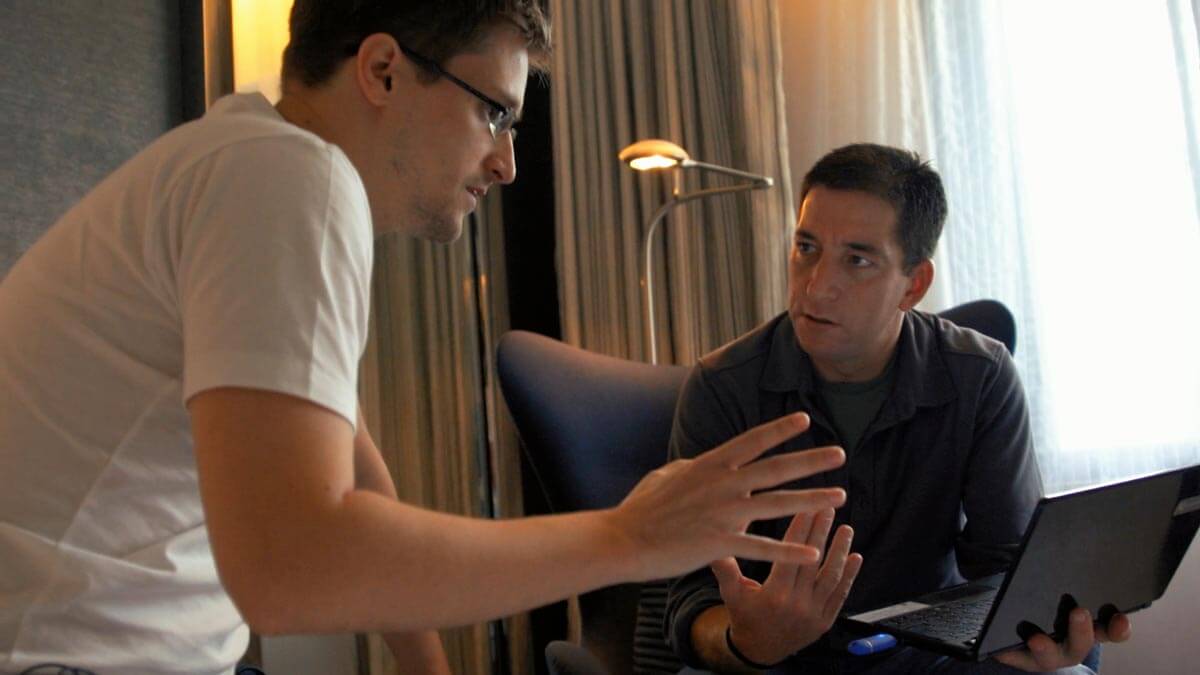Speaking out: Citizenfour tracks the unfolding events as Edward Snowden blew the whistle on US National Security Agency surveillance.
This year’s Oscar-winning documentary about the United States’s National Security Agency (NSA) leaks comes to South Africa at a crucial time. Surveillance is being debated once again, and the actions of Edward Snowden, this movie’s protagonist, are the reason.
The provisions of an Act allowing for the collection of bulk phone records of American citizens have expired and the Senate has spent the week debating its renewal. The USA Patriot Act was subjected to scrutiny when Snowden, then an NSA contractor, blew the whistle on such improper snooping.
Citizenfour (showing at Encounters 17, the South African International Documentary Festival) is a real-life neo-noir that is nothing short of brilliant. It brings to mind Tony Scott’s Enemy of the State, and will leave you chilled but aware of the possibilities of internet spying. “It’s not science fiction; this is happening right now,” Snowden reminds us in the documentary.
Citizenfour takes its title from the pseudonym Snowden used when signing off the initial encrypted emails he sent to the film’s director, Laura Poitras. He had contacted her and Glenn Greenwald, then a Guardian journalist, to disclose NSA documents. The last instalment of Poitras’s documentary trilogy about the US post-9/11, Citizenfour records the eight days she spent with Greenwald and Snowden at a Hong Kong hotel, where the whistle-blower had flown before the disclosures.

It was on Friday June 5, exactly two years ago, that the world learnt the NSA had been secretly collecting the phone records of millions of customers of the US telecoms giant Verizon. The next day, Greenwald and the Guardian’s Ewan McAskill revealed how top-secret programmes such as Prism gave the NSA direct access to the servers of internet companies such as Google, Facebook and Skype, allowing it to spy even more extensively on Americans.
Five days after that, the source of the NSA documents was named: Edward Snowden. News sites broadcast his identity, accompanied by a photo of an inexpressive, bespectacled face with pale skin, neatly gelled hair and a charcoal shirt. This ignited a game of cat and mouse, with the US desperately searching for him.
Contradicting the image of a mysterious Snowden, Citizenfour introduces audiences to a vulnerable but confident and highly articulate then 29-year-old.
“I am more willing to risk imprisonment, or any negative outcome personally, than I am willing to risk the curtailment of my intellectual freedom and that of those around me,” he bravely tells Greenwald in the film.
With moving images of Snowden’s interaction with the journalists and of the quiet but tense moments he spends by himself, at times hunched over a laptop or watching TV as the information plays out, Poitras shows a man who understands the implications of leaking classified state information – and not doing so anonymously.
“I don’t want to hide,” he says in the film, when questioned by Greenwald on why he chose to come out.
“The balance of power between the citizenry and the government is becoming that of the ruling and the ruled as opposed to the elected and the electorate.”
Poitras weaves in footage of events that took place after the information was published, including US Senate hearings on the NSA and, by showing a glimpse into an Occupy Wall Street security training session, imagery of how government spying has affected US citizens.
Poitras states that her earlier films have drawn scrutiny from the US government. And according to email correspondence audible to the film’s viewers, Snowden says part of the reason he chose US-born, Berlin-based Poitras to break the story is her “victimisation by the NSA system means that you are well aware of the threat that unrestricted secret police pose for democracies”.
This infringement of the basic human right to privacy is Snowden’s reason for blowing the whistle on the NSA.
Two years later, on June 2, Senate passed the Freedom Act, which puts an end to the bulk collection of telephone records. But Citizenfour reminds us of the importance of demanding the right to privacy, no matter where in the world we are.
In a recent interview with the Guardian, Snowden (now in Moscow) drives this point home. “When you say, ‘I don’t care about the right to privacy because I have nothing to hide’, that’s no different from saying, ‘I don’t care about freedom of speech because I have nothing to say’, or ‘freedom of the press because I have nothing to write’.”
Citizenfour will be screened in Johannesburg on June 5 at 8.45pm at the Cinema Nouveau in Rosebank, and again in Cape Town. For more information, visit encounters.co.za